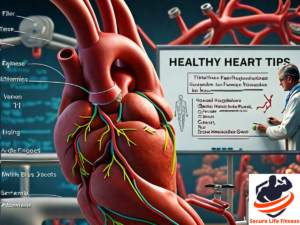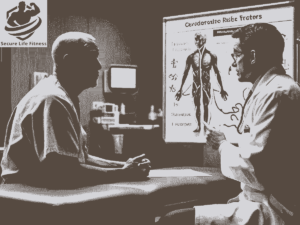Table of Contents
ToggleKey to Success
Key to Success changing world of the 21st century, the concept of flexibility has emerged as a pivotal trait for achieving success. Whether in personal development, career advancement, or business growth, flexibility stands as a cornerstone that enables individuals and organizations to adapt, thrive, and excel in dynamic environments. This blog will explore the multifaceted nature of flexibility, its significance in various aspects of life, and practical strategies to cultivate and enhance this crucial attribute called In the rapidly changing world of the 21st century, the concept of flexibility has emerged as a pivotal trait for achieving success.
Understanding Flexibility
Flexibility, in its essence, refers to the ability to adapt to new, different, or changing requirements. It involves being open to new ideas, willing to take on new challenges, and capable of adjusting one’s approach in response to evolving circumstances. Flexibility is not merely about physical adaptability; it encompasses mental agility, emotional resilience, and social adaptability. This holistic understanding of flexibility highlights its relevance in a broad spectrum of contexts, from personal growth to In the rapidly changing world of the 21st century, the concept of flexibility has emerged as a pivotal trait for Key to Success.
The Importance of Flexibility in Personal Development
Embracing Change and Growth
Personal development is inherently tied to the ability to embrace change and pursue continuous growth. Flexibility enables individuals to step out of their comfort zones, explore new opportunities, and expand their horizons. By being open to new experiences and willing to adapt, people can develop new skills, enhance their knowledge, and achieve their personal goals more effectively.
Building Emotional Resilience
Emotional resilience is a critical component of personal well-being, and flexibility plays a key role in cultivating this resilience. Life is full of uncertainties and challenges, and the ability to adapt emotionally to these fluctuations determines one’s overall mental health. Flexible individuals are better equipped to manage stress, cope with setbacks, and maintain a positive outlook even in adverse situations.
Enhancing Problem-Solving Skills
Flexibility fosters creativity and innovation, which are essential for effective problem-solving. By approaching problems with an open mind and a willingness to consider multiple perspectives, flexible individuals can devise innovative solutions and navigate complex issues more efficiently. This adaptability not only improves personal decision-making but also contributes to overall life satisfaction.
Flexibility in Career Advancement
Adapting to Technological Advancements
The modern workplace is characterized by rapid technological advancements that continually reshape industries. Professionals who exhibit flexibility can seamlessly adapt to new tools, platforms, and methodologies, ensuring their skills remain relevant and valuable. This adaptability is crucial for career advancement, as it enables individuals to stay ahead of industry trends and capitalize on emerging opportunities.
Navigating Career Transitions
Career paths are no longer linear; individuals frequently transition between different roles, industries, and even career fields. Flexibility is essential for successfully navigating these transitions. By being open to new career possibilities and willing to acquire new competencies, individuals can pivot their careers in response to changing interests, market demands, and personal circumstances.
Enhancing Collaboration and Teamwork
In a collaborative work environment, flexibility is indispensable for fostering effective teamwork. Flexible professionals are more receptive to diverse viewpoints, adaptable to different working styles, and capable of adjusting their contributions to meet collective goals. This adaptability enhances team dynamics, promotes a positive work culture, and drives organizational success.
Flexibility in Business Growth
Responding to Market Changes
For businesses, flexibility is a strategic imperative in an ever-evolving market landscape. Companies that can quickly adapt to market changes, customer preferences, and competitive pressures are more likely to sustain growth and maintain a competitive edge. This adaptability involves rethinking business models, diversifying product lines, and embracing innovative practices to stay relevant and profitable.
Fostering Innovation
Key to Success Innovation is the lifeblood of business growth, and flexibility is its enabler. Flexible organizations encourage a culture of experimentation, where employees are empowered to explore new ideas, take calculated risks, and challenge the status quo. This openness to change drives continuous improvement, fosters creativity, and leads to breakthrough innovations that propel the business forward.
Managing Crises and Uncertainties
In an unpredictable business environment, crises and uncertainties are inevitable. Flexible businesses are better positioned to navigate these challenges effectively. By having contingency plans, agile decision-making processes, and a resilient workforce, these organizations can mitigate risks, recover from setbacks, and emerge stronger from adverse situations for Key to Success.
Cultivating Flexibility
Developing a Growth Mindset
A growth mindset, as opposed to a fixed mindset, is fundamental to cultivating flexibility.People who have a growth mindset think that intelligence and skill can be acquired with work, education, and persistence. This belief fosters a willingness to embrace challenges, learn from feedback, and persist in the face of obstacles. Cultivating a growth mindset involves recognizing the value of effort, celebrating progress, and viewing failures as opportunities for learning and growth.
Practicing Mindfulness
Mindfulness is a powerful tool for enhancing flexibility. By cultivating awareness of the present moment, individuals can develop greater emotional regulation, reduce stress, and improve their ability to adapt to changing circumstances. Mindfulness practices, such as meditation and mindful breathing, can help individuals stay grounded, maintain clarity, and respond to challenges with a calm and adaptable mindset.
Building Emotional Intelligence
Emotional intelligence (EI) is closely linked to flexibility. EI involves the ability to recognize, understand, and manage one’s emotions, as well as the ability to empathize with others. High emotional intelligence enhances interpersonal relationships, communication, and conflict resolution. By developing EI, individuals can navigate social dynamics more effectively and adapt to diverse interpersonal situations with greater ease.
Embracing Change and Uncertainty
Embracing change and uncertainty is crucial for developing flexibility. This involves shifting one’s perspective to view change as an opportunity rather than a threat. By adopting a proactive approach to change, individuals can anticipate potential challenges, prepare for different scenarios, and respond with confidence. Embracing uncertainty requires a willingness to take calculated risks, explore new possibilities, and remain adaptable in the face of unforeseen circumstances.
Open this Link : Tap to here














